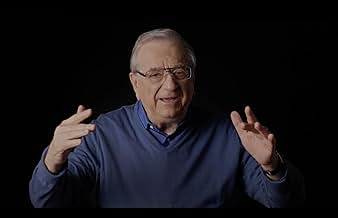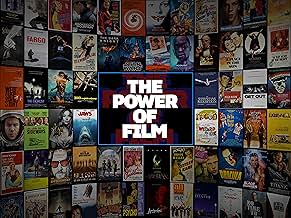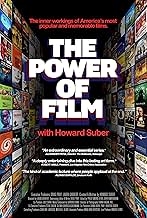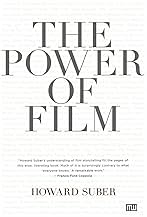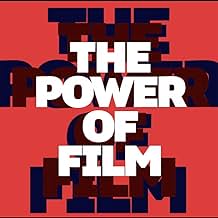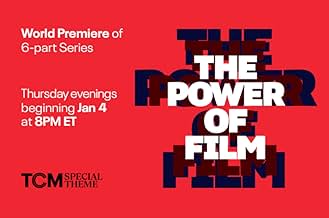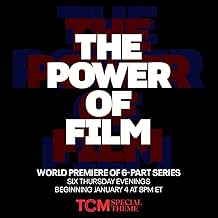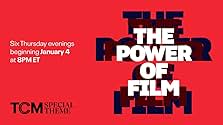अपनी भाषा में प्लॉट जोड़ेंDives deep into the art of storytelling by examining the defining principles and inner workings of the most popular and memorable American films of all time.Dives deep into the art of storytelling by examining the defining principles and inner workings of the most popular and memorable American films of all time.Dives deep into the art of storytelling by examining the defining principles and inner workings of the most popular and memorable American films of all time.
- स्टार
एपिसोड ब्राउज़ करें
फ़ीचर्ड समीक्षाएं
Mind-numbingly boring and shallow, Professor Blabbermouth takes us into the world of film with nothing new to say while stating the incredibly obvious. If we only had to rely on what this guy says, I doubt anyone other than his immediate family would make it through this (I dropped out after one episode). There are a million film clips that prop up this bore, but they aren't enough to add up to entertainment. The first episode is completely all over the place and makes not much of a point, and the point made isn't much and hardly warranted forty minutes to tell. He should just write down his point on a 3X5 index card and let viewers watch a real movie.
I reckon the title speaks for itself. Dozens of movies are interpreted and dissected in this docuseries, but that's absolutely not the point. At least not in my opinion. I've never been driven to write a review on a movie/show/whatever, but please go into this series understanding that this is a narrative on storytelling in general. If you love films with a passion that transcends every single other form of storytelling, you will appreciate this series. Otherwise, read a book about the art of literature. Or listen to an album about the art of music. Or perhaps view a painting about the art of (art?). This is for film lovers, made by film lovers, told to you by a film lover. And now reviewed by a film lover.
Hopefully this is read by a film lover.
Hopefully this is read by a film lover.
Wow.
This documentary gives us the screenwriting essentials. If you are a serious storyteller, it's a "must see.".
UCLA Professor Howard Suber gifts us with wisdom, from a lifetime of teaching graduate level screenwriting, at the top film school in the world.
Perfectly edited for the general public.
In Prof. Suber's honor, UCLA film students coined the term "HOSH Pivot." Which is an acronym for "Howard Suber's One Hour Pivot," spelled backwards. HOSH means the plot takes a dramatic turn, one hour into the film. Which is a key structure of every great film. Once you've a created a new vocabulary word, you're established as a historical figure.
This documentary is a treasure. Which should be replayed again and again.
This documentary gives us the screenwriting essentials. If you are a serious storyteller, it's a "must see.".
UCLA Professor Howard Suber gifts us with wisdom, from a lifetime of teaching graduate level screenwriting, at the top film school in the world.
Perfectly edited for the general public.
In Prof. Suber's honor, UCLA film students coined the term "HOSH Pivot." Which is an acronym for "Howard Suber's One Hour Pivot," spelled backwards. HOSH means the plot takes a dramatic turn, one hour into the film. Which is a key structure of every great film. Once you've a created a new vocabulary word, you're established as a historical figure.
This documentary is a treasure. Which should be replayed again and again.
I would much rather listen to Spielberg or Scorcese discuss the power of film. I felt that Dr. Suber just states the obvious. There weren't many unique insights.
For example, he'll discuss the story structure of a particular film verbatim and explain how common writing threads are used in various films. I found myself repeatedly saying, so? I'm watching this episodically on TCM. So far, episode two is the best but not enough to recommend it. I see it has received an 8.3 rating on IMDB which is very high marks, so I must be in the minority on this. See for yourself as it is watchable and has moments.
For example, he'll discuss the story structure of a particular film verbatim and explain how common writing threads are used in various films. I found myself repeatedly saying, so? I'm watching this episodically on TCM. So far, episode two is the best but not enough to recommend it. I see it has received an 8.3 rating on IMDB which is very high marks, so I must be in the minority on this. See for yourself as it is watchable and has moments.
This series is designed to teach people about the elements that go into a successful and memorable film. As such, you get to look at (once again) clips from successful and memorable films. Introducing these films is a nice old man who apparently taught this subject to film makers for decades. He's obviously knowledgeable and has a certain charm, but whatever he is trying to communicate gets lost in his many detours and sidetracks.
Occasionally he manages to stay on track, and when he does this, he isn't necessarily correct. At one point (I can't remember where) he talks about the need for surprise and how repetition can be harmful to the film's impact. Nothing could be further from the truth. Repetition is a fundamental aspect of human life. Repetition is a fundamental aspect of human life. Freud wrote about it and called it the "repetition compulsion" and tied it to the basic death drive. It's the core of most comedies and the way in which most action films anticipate a dramatic confrontation. Gun fighters don't meet for the first time. You see them in matches and anticipate what is going to happen in the final match. Substitute gunfighters for chess champions, gymnists, etc. And you see the structure of most effective dramatic scenes.
Not a complete waste of time, and it's always fun to see memorable scenes even if you've seen them hundreds of times. Along the way there are some good observations.
Occasionally he manages to stay on track, and when he does this, he isn't necessarily correct. At one point (I can't remember where) he talks about the need for surprise and how repetition can be harmful to the film's impact. Nothing could be further from the truth. Repetition is a fundamental aspect of human life. Repetition is a fundamental aspect of human life. Freud wrote about it and called it the "repetition compulsion" and tied it to the basic death drive. It's the core of most comedies and the way in which most action films anticipate a dramatic confrontation. Gun fighters don't meet for the first time. You see them in matches and anticipate what is going to happen in the final match. Substitute gunfighters for chess champions, gymnists, etc. And you see the structure of most effective dramatic scenes.
Not a complete waste of time, and it's always fun to see memorable scenes even if you've seen them hundreds of times. Along the way there are some good observations.
टॉप पसंद
रेटिंग देने के लिए साइन-इन करें और वैयक्तिकृत सुझावों के लिए वॉचलिस्ट करें
विवरण
- रंग
इस पेज में योगदान दें
किसी बदलाव का सुझाव दें या अनुपलब्ध कॉन्टेंट जोड़ें


